Episode 598: Alex Cacciari of Michigan’s Seeley Farm on trialing native perennials for the floral market
February 22nd, 2023
Podcast: Play in new window | Download
Subscribe: Apple Podcasts | Podcast Index | RSS | More
A few weeks ago, Slow Flowers and our publishing partner BLOOM Imprint released our 2023 Slow Flowers Floral Insights and Industry Forecast. We called our first insight “Non-Floral Florals,” acknowledging the broadening plant palette for cut flower growers and florists who are adopting all types of botanical ingredients — from mushrooms and vegetables, to foraged materials to nontraditional plants such as native species.
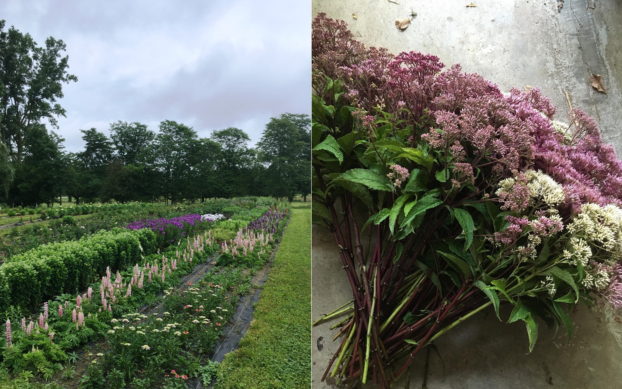
We highlighted today’s guest in that insight and I’m thrilled that you can meet her today and learn more. In Ann Arbor, Michigan, Slow Flowers member Alexandra Cacciari of Seeley Farm has introduced her floral customers at the Michigan Flower Growers Cooperative to native perennials suitable as cut flowers.
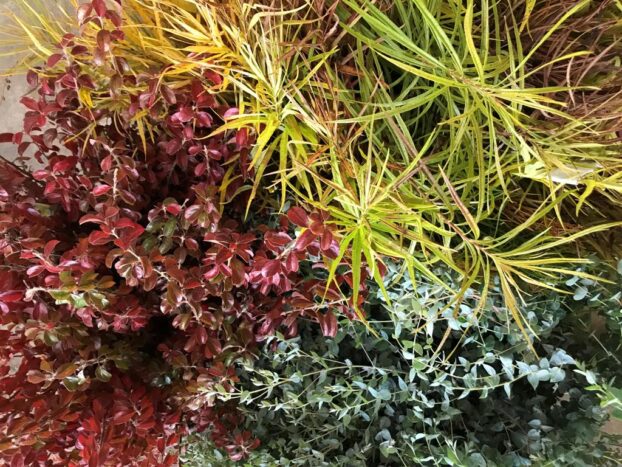
Through a Farmer-Rancher grant from North Central Sustainable Agriculture Research and Education (NC-SARE), the project has trialed more than 20 species of native, herbaceous flowers and foliage plants to determine their value and marketability in the wholesale floral industry.
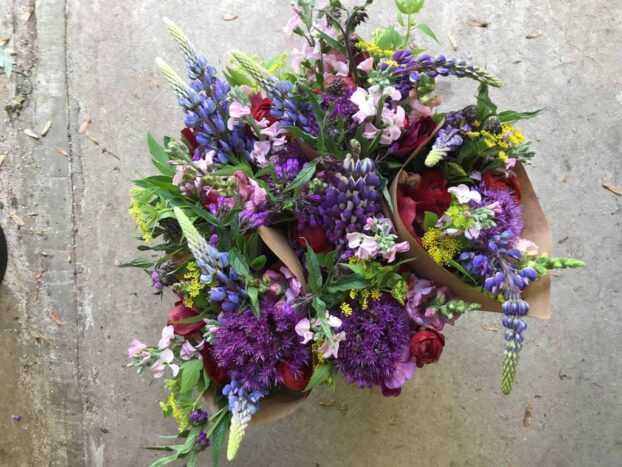
According to Alex, these plants (which include such beauties as gentian, black-eyed Susan, blue flag iris, Joe Pye weed, and swamp milkweed) support wildlife and pollinators, and are more drought and flood tolerant than their non-native counterparts. “As cut flower crops, when planted in their desired conditions, native plants require less added water, fertility, and pesticides than traditional crops, and offer a sustainable option for growers,” she explains.
Thanks so much for joining us today. I hope you are inspired to explore native perennials in your region!
Find and follow Seeley Farm on Instagram
Listen to our October 2018 conversation: Episode 371: The Michigan Flower Growers Cooperative with Amanda Maurmann of Gnome Grown Flower Farm and Alex Cacciari of Seeley Farm
More about the Native Cut Flower Project
This Week’s News
In other news, I have a lot of thanks to share.
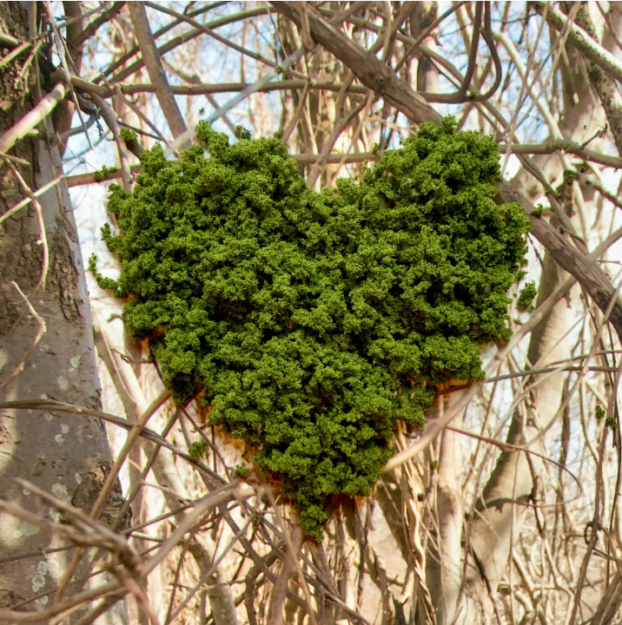
Last week, Valentine’s Day week, was filled with flowers and opportunities to share our Slow Flowers message!
We received a lot of media attention, including three major mentions in the New York Times, David Byrne’s “Reasons to be Cheerful” newsletter, and the international environmental publication Hakai Magazine.
We also wrapped up five amazing days at the Northwest Flower & Garden Festival floral stage, where Slow Flowers produced daily hands-on floral design workshops with local and domestic botanicals. One-hundred-and-fifty students participated and hundreds more were in the audience to learn from our member design instructors, including Riz Reyes of RHR Horticulture and Heronswood Gardens (past Slow Flowers Summit speaker); Hannah Morgan of Fortunate Orchard (who many of you met during our November Slow Flowers Meet-up), Kiara Hancock of K. Hancock Design (past podcast guest), and other past podcast guests Nick Songsangcharntara and Tracy Yang of Jarn Co. Farm — Tracy will also be speaking at the 2023 Slow Flowers Summit coming up. We also hosted friend of Slow Flowers, horticulturist Tyra Shenaurlt of the WW Seymour Conseratory in Tacoma, Washington. I met many fans and listeners who introduced themselves, and many other aspiring flower farmers and florists who we hope will join our Community very soon. It was an incredible and inspiring week and the Flower Show theme – Spring Vibes Only! – was exactly what we all needed.
Thank you to our Sponsors
This show is brought to you by Slowflowers.com, the free, online directory to more than 850 florists, shops, and studios who design with local, seasonal and sustainable flowers and to the farms that grow those blooms. It’s the conscious choice for buying and sending flowers.
Thank you to our lead sponsor, Farmgirl Flowers. Farmgirl Flowers delivers iconic burlap-wrapped bouquets and lush, abundant arrangements to customers across the U.S., supporting U.S. flower farms by purchasing more than $10 million dollars of U.S.-grown fresh and seasonal flowers and foliage annually. Discover more at farmgirlflowers.com.
Thank you to the Seattle Wholesale Growers Market, a farmer-owned cooperative committed to providing the very best the Pacific Northwest has to offer in cut flowers, foliage and plants. The Growers Market’s mission is to foster a vibrant marketplace that sustains local flower farms and provides top-quality products and service to the local floral industry. Visit them at seattlewholesalegrowersmarket.com.
Thank you to Longfield Gardens, which provides home gardeners with high quality flower bulbs and perennials. Their online store offers plants for every region and every season, from tulips and daffodils to dahlias, caladiums and amaryllis. Check out the full catalog at Longfield Gardens at longfield-gardens.com.
Thank you to Rooted Farmers. Rooted Farmers works exclusively with local growers to put the highest-quality specialty cut flowers in floral customers’ hands. When you partner with Rooted Farmers, you are investing in your community, and you can expect a commitment to excellence in return. Learn more at RootedFarmers.com.
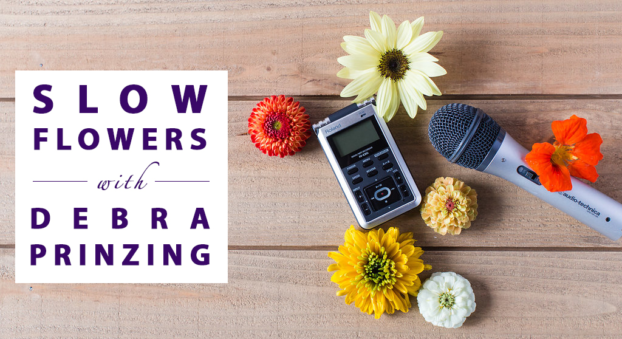
Thanks so much for joining me today! The Slow Flowers Podcast is a member-supported endeavor, downloaded more than one million times by listeners like you. Thank you for listening, commenting and sharing – it means so much. As our movement gains more supporters and more passionate participants who believe in the importance of our domestic cut flower industry, the momentum is contagious. I know you feel it, too.
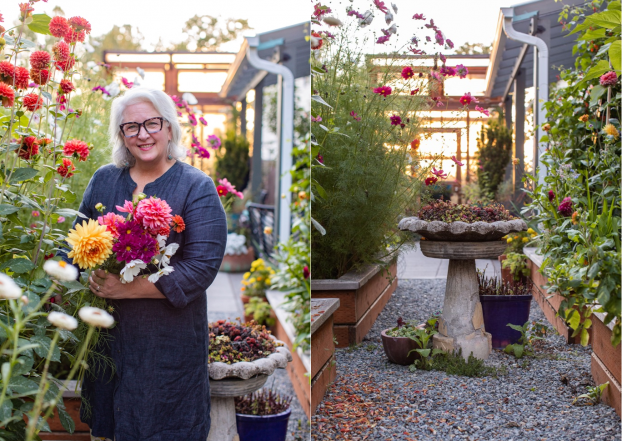
If you’re new to our weekly Show and our long-running Podcast, check out all of our resources at SlowFlowersSociety.com
I’m Debra Prinzing, host and producer of the Slow Flowers Show & Podcast. The Slow Flowers Podcast is engineered and edited by Andrew Brenlan.
The content and opinions expressed here are either mine alone or those of my guests alone, independent of any podcast sponsor or other person, company or organization. Next week, you’re invited to join me in putting more Slow Flowers on the table, one stem, one vase at a time. And NEXT WEEK will be very very special — our 500th ever episode of the Slow Flowers Podcast! I can’t wait to start celebrating and I’ll meet you then!
Music credits:
Color Country; Gaena
by Blue Dot Sessions
http://www.sessions.blue
Lovely
by Tryad
http://tryad.bandcamp.com/album/instrumentals
http://creativecommons.org/licenses/by-sa/3.0/
In The Field
audionautix.com









